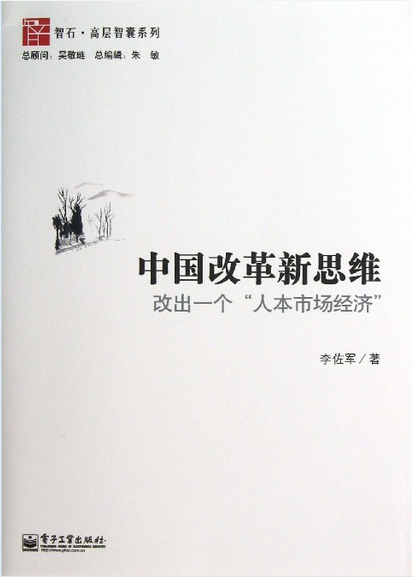New Approach for China's Reform: Reform towards A Human-oriented Economy
2015-12-01
 |
|
New Approach for China's Reform: Reform towards A Human-oriented Economy |
By Li Zuojun, Research Institute of Resources and Environment Policies of DRC
The 18th CPC National Congress has portrayed the blueprint for China's future development and actual measures to realize future tasks. The main approach is to accelerate the transformation of economic development model and comprehensively promote the "five in one" reform relating to economy, politics, culture, social system and ecology. Then how can China promote economic transformation and overall reform? Modern China has undergone a progressive reform process for over three decades. To forecast the way ahead or where we are going, we must first of all be clear about the course of China's reform. This book will enable you to review the past three decades of reform that have changed China's destiny and to preview China's reform prospects and approaches in the next three decades. This book is adaptable to the entire readership that is interested in China's reform.
The book is divided into three parts Part one give a narration of the past three decades of reform. Part two illustrates how the reform goes through the deep-water area. Part three describes the new approach of human-oriented reform. In Part one, the author uses three chapters to give a summary of China's reform including gains and losses, implications of reform, reform opportunities and how reform overcomes various difficulties. In Part two, the author illustrates how the reform goes through the deep-water areas in two chapters including misconceptions in China's reform and ways for guarding against going astray. In Part three, the author describes the new approach of human-oriented reform in three chapters including new approach toward reform, human-oriented reform, new tasks for reform, new measures for reform and scientific reform.
This book is written by Li Zuojun, Doctor of economics, doctoral supervisor, research fellow and Deputy Director-General of Research Institute of Resources and Environment Policies of DRC. If there are any views inappropriate in this book, it is hoped that dear readers would not feel restrained to inform us.














